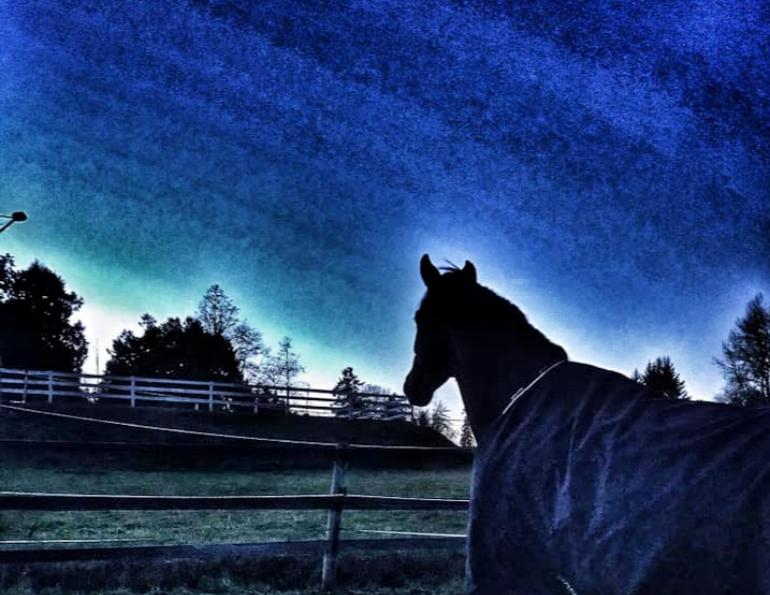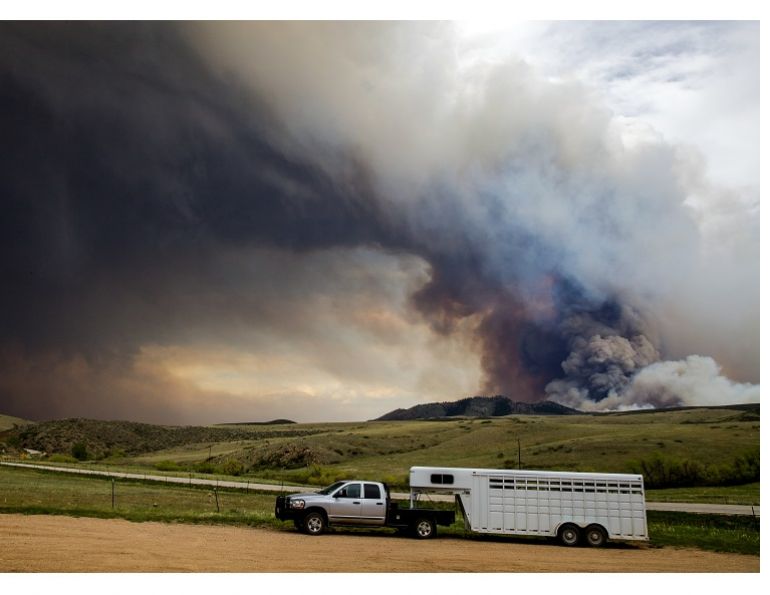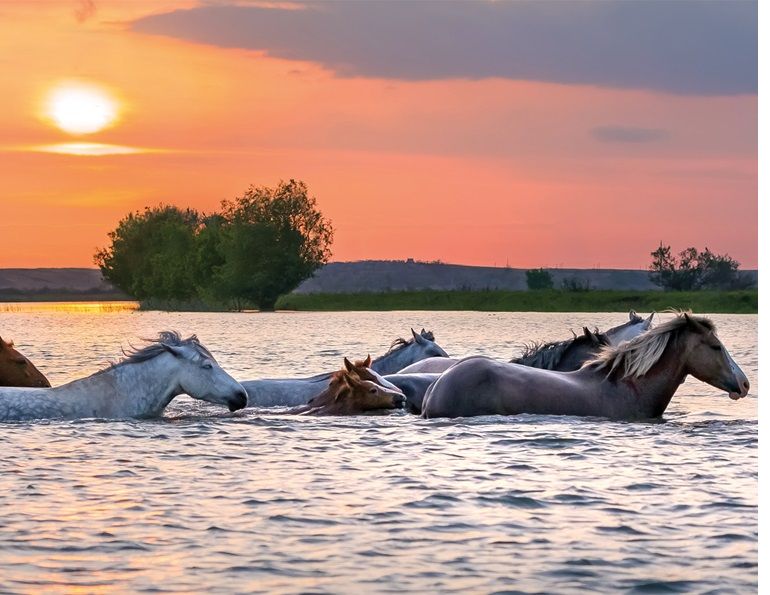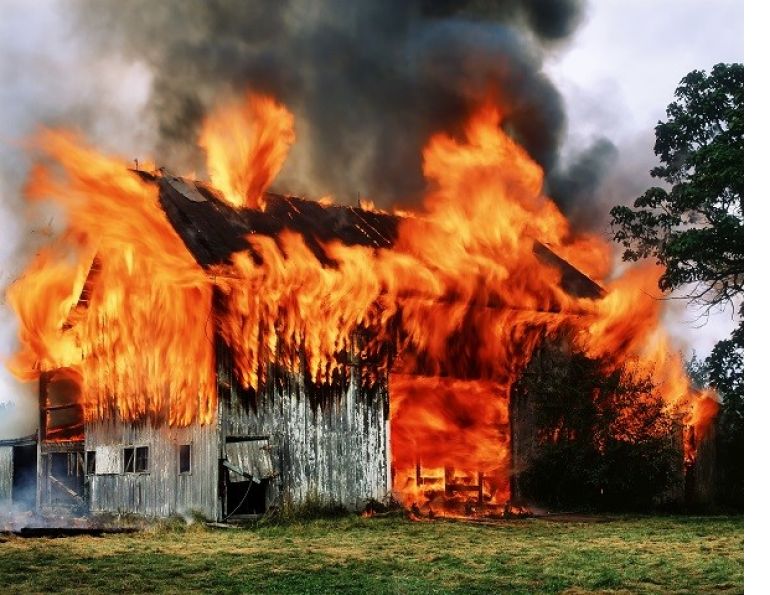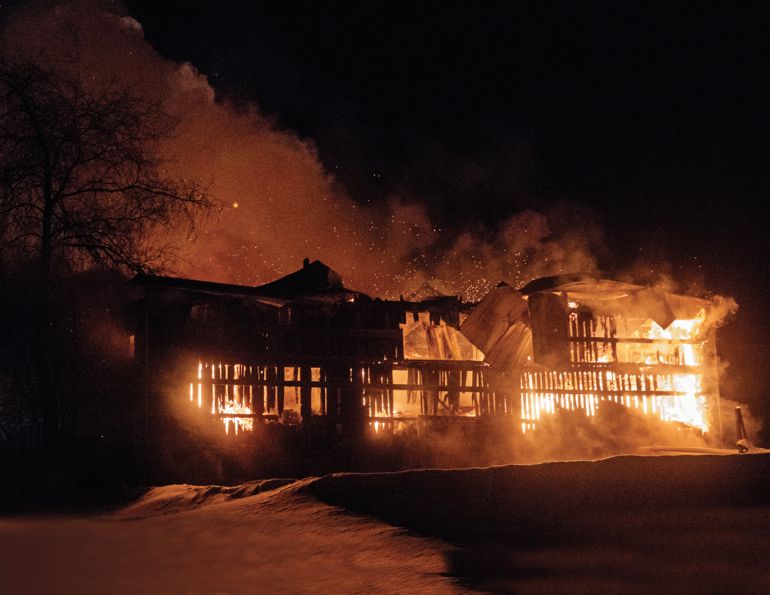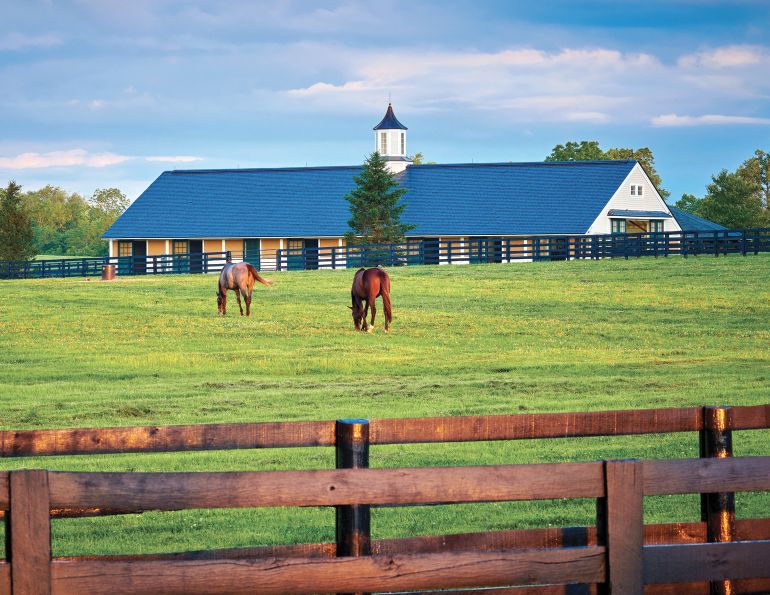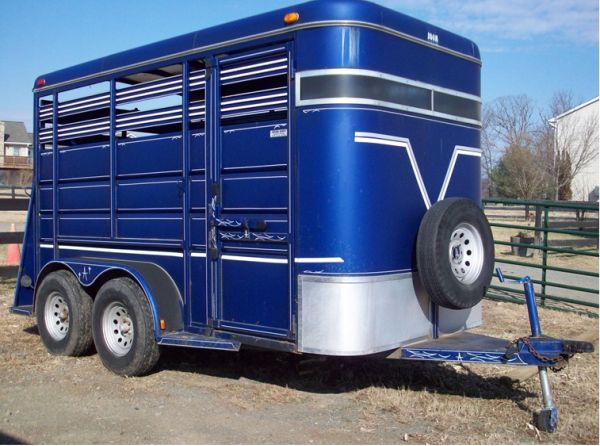A reality check…
By Margaret Evans
Many people dream of leaving the city behind for the slower pace and more natural lifestyle of the countryside.
The yearning for country living may be driven by the dream of keeping your horses at home, owning other livestock, developing a large garden, and enjoying a healthier way of life. But this idealized vision of rural life may not reflect reality for you and your family. There are many practical, environmental, and legal considerations to sort through, not to mention the financial costs. So before dropping a down payment on a piece of property, you have some homework to do, and there are some important factors to consider that might save you big headaches later on.
The search for your ideal property starts by identifying your short and long-term goals, deciding what is most important to you, and setting priorities. Allow lots of time to fully research and understand all aspects of this major decision. By exploring and considering all the differences between urban and rural living, you’ll be prepared to make informed decisions.
The average acreage has anywhere from one to twenty acres, but more often it is five to ten acres. If you’re considering an undeveloped piece of land, decide what both you and the land are capable of. Does the raw land have a good building site? It will require a lot of improvements, such as clearing trees, drilling a well, and installing a septic system. Does the property lend itself to good pasture or hay land, or is it rocky with poor soil, or wet and marshy in places?
Or would you prefer to buy a property already set up so you can be settled in before the snow flies?
The next step is to connect with a realtor experienced in acreages and country homes. Your realtor needs a strong understanding of the real estate in the region where you are hoping to buy, as well as sound knowledge of the zoning and land use requirements, bylaws, and weather patterns in the area.
Zoning and land use

Your local municipal office can answer your questions about the zoning and land use requirements for the property you are considering. Be sure to ask whether there are restrictions limiting your intended use of the property, such as the types and number of animals allowed. Photo: Canstock/PurpleQueue
“Zoning and water rights are perhaps the two most critical points to investigate when you purchase your acreage,” says Elya Byrne with Geen+Byrne Real Estate Team, Re/Max, Kelowna, BC. “Having an experienced professional to help you navigate these complex diligence items is critical to avoiding a host of potential issues that can come up if not thoroughly investigated.”
She recommends that when it comes to zoning and property rights, buyers should have detailed discussions with the appropriate municipality or regional district or, as necessary, provincial and federal authorities. Naturally, this differs with each province, but what’s important is to know the bylaws and land use laws pertaining to the specific area you are looking at.
In British Columbia for example, the Agricultural Land Reserve (ALR) is a province-wide zone where agriculture is the primary purpose. While it comprises just five percent of BC’s land base, it is a region of the province’s greatest agricultural capacity from crop and produce production to raising livestock. “This is a provincial authority that supercedes local zoning and affects a lot of our acreage listings here in the Okanagan,” says Byrne. “Knowing how to navigate the intricacies involved with ALR land is a specialty in itself.”
Be clear about your intended use of the property or what you think you may want to do with the property in the future. Your planned use of the land must match what the land is zoned for. Sometimes, people will buy property with dreams of it being a breeding/training facility, but the zoning may have a restriction limiting the types and number of animals allowed.
Related: Building Your Dream Horse Barn

Ask specific questions about the property and the region. For example, could the field across the road be developed into a residential subdivision, destroying your pastoral view? Photo: Shutterstock/Bonita R Cheshier
“Just because it’s agricultural doesn’t necessarily mean you are going to be able to have a full bonafide farm on it if there are restrictions,” says Georgia Clement, realtor with BC Farm and Ranch Realty headquartered in Abbotsford, BC. “Sometimes people will say that nobody bothers enforcing this restriction or enforcing that one, but the restrictions are there and if you get one neighbour who doesn’t like what you are doing on the property, they can enforce the zoning restrictions on you. It is quite important to make sure you comply with all the zonings for the intended use of the farm.”
Clement explains that zoning also dictates where your intended new buildings can be located, as well as setbacks from property lines. When planning a barn, for example, the zoning may permit you to build one, but it will also dictate where on the property you are allowed to put it.
“So, if you want a big breeding barn on two acres and you can’t comply with the zoning, you won’t be building your big barn because you won’t get a building permit,” says Clement.
If there is no existing survey, have the property surveyed to determine its exact size and dimensions, and the precise location of the property lines.
Consider the topography of the area

Find out if there have been floods or landslides in the past, as weather events and a changing climate are of increasing concern. Use a local real estate agent and a local lawyer, both of whom should be familiar with the historical information of the region. Photo: Dreamstime/Shuttermama
Considering the many destructive weather events across Canada in recent years and the consequences of climate change, it’s important to assess how vulnerable the property is to the natural landscape around it.
Take a careful look to see if there are ridges, hillsides, or rocky slopes close to buildings, and look at the neighbouring properties, too. How stable are those contours and what are the risks in the event of extreme rain events, blizzards, or severe snow and ice? If there are streams or rivers close by, find out if the property is in or close to a floodplain, and if there have been floods or landslides in the past.
Is the region subject to low rainfall and drought in summer, and if so, is there increased risk of wildfires? You may need equipment for brush clearing to minimize the risk.
Don’t just take the word of the realtor or the seller – talk to the neighbours about the realities of living in the area. You will get to meet your potential new neighbours, and possibly find out some interesting historical information about the region.
Related: Family Farms & Ranches
House, barn, buildings, and improvements

Satisfy yourself that all buildings are structurally sound. If upgrades and renovations have been done, confirm if they were performed by a licensed contractor in compliance with your province’s building code. Photo: Clix Photography
Find out the age of the house, barn, and outbuildings, and satisfy yourself that they are structurally sound. Have a professional check out the foundations, heating, plumbing and electrical systems, roof, walls, floors, and all other structural components of all buildings. Find out whether and when upgrades were done, and if they were done to the building code.
Ask about the heating system, and the amount of monthly heating bills, especially in winter. Is the house equipped with Energy Smart appliances? If the home includes a fireplace, was it installed to code, has it been properly maintained and recently inspected?
Consider the location of the house on the property and its setback from the road (ideal for privacy and security reasons, but a possible challenge in winter if a snowstorm or blowing winds cause the driveway to drift over). Whether a paved or graded gravel, think about the equipment you will need to maintain the driveway year-round.
The barn, storage sheds and other outbuildings should also be inspected for mechanical, electrical, and fire hazards. They should be well-located and easily accessible. Are they in good repair, or will maintenance and improvements be required soon after you take possession? Investigate the power supply to these buildings, and whether it is adequate. Ask about the typical frequency and length of power outages, and whether you should buy a backup generator.
Safe, well-constructed fencing enhances the appearance and value of the property. If the fencing has been poorly maintained or is unsafe, replacing it should not be postponed and will be a major budget item. Be sure to walk the entire property to assess the lay of the land and the condition of all fencing.
The all-important water supply
In urban centres, water is always there, and we take it for granted when we turn on the tap. Water in the country is a different story, and this makes the property’s water supply a high priority area of your research.
Investigate the water source, its volume and quality, and whether it is potable (drinkable). Ask whether the barn and house share the same water source, who else uses the same water supply and for what purpose (e.g., livestock, irrigation), and if there are shortages during the year.
“You will want to consider your water source and how much it is producing,” says Amy Brattebo, realtor with RE/MAX Little Oak Realty in Langley, BC. “Have this inspected and the quality tested by a professional, as drilling a new well can be a very large unexpected expense!”
When this magazine’s publisher and her husband built a home on an acreage near Grande Prairie, Alberta, the 30-foot surface well produced a good supply at 40 gallons/minute, but it was so full of iron that it turned the laundry orange, and taking a bath was like bathing in orange juice. Only after investing in a water treatment system to deal with the iron and other minerals was the water suitable for drinking and household use.
When the well is already in place, “potential buyers should always take a water test from the well water,” says Clement. “You should be testing for nitrates, metals, and other chemicals. It can all be treated, but you have to know what you are treating. You should test the water once a year. Water quality can change. It can become contaminated without you knowing it. It you don’t have treatment equipment on your water source, you want to be making sure you are testing it regularly.”
For more information on where to get the water tested, check with the local health authorities or ask your realtor to enquire further about testing. Ask about the water on the proposed property, as well as the water quality in the area generally. You need to know if nearby farms are irrigating crops or growing crops in greenhouses, and if they are drawing from the same water source that will supply your needs. Horticulture businesses can draw a lot of water.
Here in BC, Clement says that the government is on the way to licensing and registering all drilled wells in that province, as well as shallow wells. In the bigger picture, they may start monitoring usage and this could lead to a water charge.
“It will depend on the size of your need,” she says. “People just have to make sure that what they have got for a water supply is going to meet their need and, if you get into horticulture, that is a huge, huge, draw on a water table in an aquifer. On small acreages, it’s not uncommon for the odd time when your neighbour sucks your water dry. If the person beside you is as dependent on a well as you are and they are using more water than you are, it’s not uncommon for them to dry up the wells around your area. You’re all tapping into the same aquifer and that’s where the licensing could possibly be of benefit to some people, and the government could control how much water one neighbour takes so that they don’t impede the other from getting their fair share.”
Byrne says that when the water is supplied by a utility or a cooperative, whether by ground or surface rights or a well, careful diligence is key.
“Buyers should investigate the quantity and quality of the water as well as the rights and the ability to irrigate,” she says. “If you plan to grow hay in the Okanagan heat and want three cuts, you best have adequate irrigation rights. You may be buying a 14-acre piece of land but only half is considered arable, in which case the property may not be able to qualify for more than seven acres of water allotment.”
If the home is on a well, find out how deep it is, who did the drilling, the age of the pump, and when it was last serviced.
“When it comes to more complex water sources like wells and water body rights, on top of receiving professional advice on the legal framework surrounding those rights, it is important to consult the appropriate expert,” says Byrne. “We always recommend our clients inspect wells carefully. This may include a quality and quantity test, as well as a hydrogeological evaluation.
“Particularly if there is only one source of water to the property, a hydrogeological evaluation is certainly recommended and would address concerns such as changing landscape and climate, and the potential impact on the water source. Trying to predict specific future weather patterns can be a challenge.”
Related: 18 Ways to Improve Security on Your Horse Farm

Try to view the property at different times of the year to determine if there are season concerns such as flooded areas in the spring. For clues, look at the lay of the land and the creatures that inhabit it in its natural state. Photo: iStock/Steverts
When the author purchased acreage in the Columbia Valley in the Chilliwack area of BC, the water source was the local stream coming off Vedder Mountain. Six homes had easements to access and contain the water with natural reservoirs. One by one, homeowners installed wells and stopped using the stream. It was a number of years before we drilled our own well, going down 250 feet, securing a pressure of 50 gallons/minute and having the water certified potable. Our decision to install a well came as intense storms were becoming more frequent and the hike to the reservoir a short distance up the mountain was becoming more challenging with erosion of the trail, and falling trees and branches plugging the waterflow. After one particularly violent storm, the stream burst its banks, tore out the road and flooded across our hayfield, dumping hundreds of tonnes of gravel in its wake.
Septic system
When living in town, flushing the toilet is not something we think much about. But in the country, everything that goes down the drains ends up in the property’s septic system and affects how well that septic system works.
When building new, several conditions, including proximity to creeks and bodies of water, will dictate which system is most appropriate for the land. If already in place, find out the type of system being used, the size/capacity, when it was last emptied and serviced, if there have been any problems or backups, and have the system inspected by a qualified professional. Proper maintenance will extend the life of your septic system, so learn all you can about how to maintain the system, and the septic-friendly products you should use.
A word about disclosure
The idea behind the Property Condition Disclosure Statement is that it requires the seller to disclose any problems with the property. It is meant to give the buyer a snapshot of issues that have happened in the past, to better understand the condition of the property, and help them avoid surprises in the future. The document is often legally incorporated into the purchase and sale agreement. Both parties should understand the importance of the document and approach it honestly, but it should not be relied upon as the total source of information.
A variety of issues may come up with respect to the past use of land that the purchaser wants to know, such as what has been grown on the land, environmental concerns, invasive plants, animal burials, chemical spraying, etc.
“When it comes to more unusual disclosures, clients are encouraged to ask their realtor to inquire with the seller or other sources,” says Byrne. “For instance, if the thought of someone passing away in a home on a property that you intend to purchase is concerning, then be sure to note that to your agent. If the thought of animals being buried on the acreage, as is a common practice, upsets you, be sure to have your agent inquire. These are just some of the less common disclosures that are not necessarily covered off in the property disclosure statement.”
Accessibility during emergencies and adverse weather

Think about how you will clear that long driveway after a snowstorm. As services in rural areas are often among the last to be restored, ask neighbours about the typical frequency and length of power outages, and whether you will need a backup generator.
Canada’s climate is warming twice as fast as the global average. Canadians are experiencing the impacts and costs of climate-related extremes firsthand and becoming increasingly concerned about weather events and the changing climate.
With this in mind, consider the accessibility of the property, and in particular the house and barn, during adverse weather such as snowstorms, blizzards, and heavy rains. Look for trees growing close to the house or other buildings that may need to be removed before they are blown down in windstorms. A tight row of trees, such as cedars, may need to be planted as a windbreak in the event of snowstorms and blizzards.
Wintertime can be challenging. Think about how that long driveway will be cleared after a snowstorm. You may be on your own before any services arrive and clearing the driveway will be a priority so you can drive to work, take the kids to school, or to give emergency vehicles access in the event they are needed.
Related: 50 Ideas for Improving Your Horse Property
Lifestyle changes

Studies show that living in the country is beneficial for both your physical and mental wellbeing, but there will be trade-offs. Be honest with yourself, and make sure your spouse and children share your passion for this major lifestyle change. Photo: Shutterstock/Stocklite
The dream of owning a home in the country calls up visions of peaceful days and a simpler lifestyle, with less stress and a chance to fulfill lifelong dreams… but the reality can be hard work. Be honest with yourself. Are you prepared to spend your summer weekends reroofing the barn and fixing fences? Will you be capable of maintaining the property yourself, or can you afford to hire help? Will you be able to take a vacation with peace of mind, knowing that your animals and property were left in capable hands?
Talk to your spouse and children about whether they share your desire for this major lifestyle change. Will they miss their friends, the conveniences of town, and easy access to cultural activities?
Moving to the country means leaving behind many services, among them public transportation. You may find it necessary to purchase another vehicle, because if your children are involved in extra-curricular activities, or if you simply need a jug of milk, you’ll be driving. An acreage close to town may offer the best of both worlds – the lifestyle you crave along with easy access to modern amenities.
Are you financially ready?

Photo: Shutterstock/DocStockMedia
Buying any home or property is a huge financial commitment, so be realistic about the financial pros and cons. If property values rise you’ll be more financially stable, and you’ll be able to house and care for your horses the way you want without worrying about finding a reputable and affordable boarding facility. But coming up with the down payment as well as regular mortgage payments, along with property maintenance and improvement costs, may tie up your cash flow and cause stress on your finances.
Purchasing an acreage can be a challenging, exciting time so it is important to have your finances in order, and to build a relationship with your bank or financial institution, one that has a rural and farmland component to it.
You’ve considered all aspects of your proposed move to the country and decided it’s the right decision for you and your family. With your reality check complete, it’s time to put your country home purchase plan into action, and start looking forward to turning your dream into a reality.
The Financial Side of Buying Horse Property
To learn more about the legal and financial aspects to consider when buying a horse property, please read The Financial Side of Buying Horse Property.
Main photo: Canstock/Irina88w





